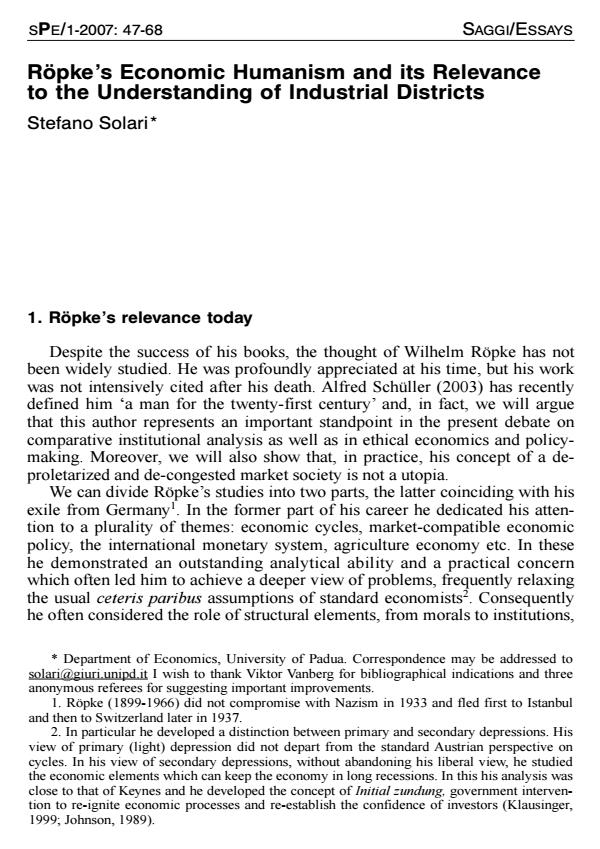Ropke’s Economic Humanism and its Relevance to the Understanding of Industrial District
Journal title STORIA DEL PENSIERO ECONOMICO
Author/s Stefano Solari
Publishing Year 2007 Issue 2007/1 Language English
Pages 22 P. 47-68 File size 132 KB
DOI
DOI is like a bar code for intellectual property: to have more infomation
click here
Below, you can see the article first page
If you want to buy this article in PDF format, you can do it, following the instructions to buy download credits

FrancoAngeli is member of Publishers International Linking Association, Inc (PILA), a not-for-profit association which run the CrossRef service enabling links to and from online scholarly content.
<em>Röpke’s economic humanism and its relevance to the understanding of industrial districts </em> (di Stefano Solari) - ABSTRACT: The thought of Wilhelm Röpke is valuable for understanding contemporary problems of market economy instability. We focus on two traits of his thought pertaining to the viability and to the ethical basis of markets. The social philosophy of Röpke is then compared with the actual features of industrial districts. The latter share some of the features of Röpke’s ideal market order and show that a decentralised non-mass society is an expedient socio-economic organization. However, the evidence provided by industrial districts confirms Röpke’s view that some order-oriented policy is required to safeguard both economic and social prerequisites of market interaction.
Stefano Solari, Ropke’s Economic Humanism and its Relevance to the Understanding of Industrial District in "STORIA DEL PENSIERO ECONOMICO" 1/2007, pp 47-68, DOI: